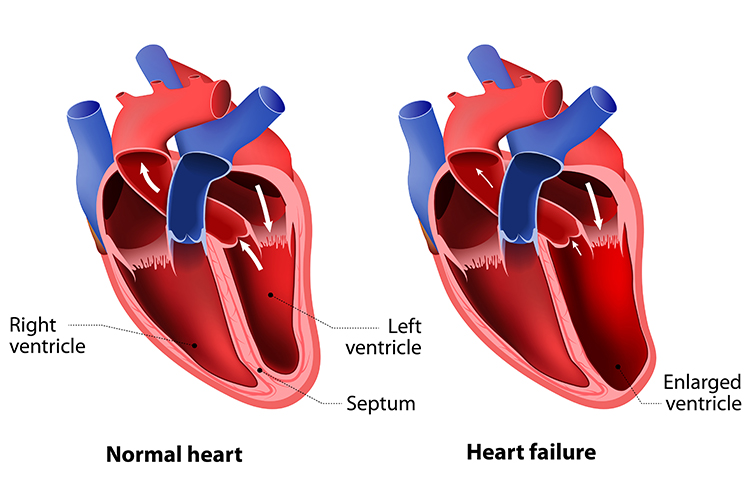Managing and preventing heart failure (HF) involves a combination of lifestyle modifications, medical treatments, and close monitoring. Here are key approaches for both management and prevention:
1. Lifestyle Modifications
- Dietary Changes:
- Sodium Restriction: Reducing salt intake to prevent fluid retention.
- Balanced Diet: Focus on a heart-healthy diet rich in fruits, vegetables, whole grains, lean proteins, and healthy fats (e.g., the Mediterranean diet).
- Weight Management: Maintaining a healthy weight can reduce the heart’s workload.
- Physical Activity:
- Engage in regular, moderate exercise (as recommended by a doctor), such as walking or swimming, to improve cardiovascular function.
- Exercise should be tailored to the individual’s condition and capabilities.
- Smoking Cessation:
- Smoking damages blood vessels and worsens heart function. Quitting smoking is crucial for heart health.
- Limit Alcohol Intake:
- Excessive alcohol can worsen heart failure and cause arrhythmias, so moderation or abstinence is recommended.
- Stress Management:
- Stress can exacerbate heart failure. Techniques such as meditation, deep breathing, yoga, and adequate sleep can be beneficial.
2. Medical Management
- Medications:
- ACE Inhibitors or ARBs (Angiotensin Receptor Blockers): Help relax blood vessels, reduce strain on the heart, and improve blood flow.
- Beta-blockers: Slow the heart rate and reduce blood pressure, decreasing the heart’s workload.
- Diuretics: Help remove excess fluid from the body, reducing swelling and easing symptoms of heart failure.
- Aldosterone Antagonists: Help reduce fluid buildup and control blood pressure.
- SGLT2 Inhibitors: Newer drugs that help improve heart function in certain types of heart failure.
- Monitoring Heart Function:
- Regular check-ups with your healthcare provider to assess the heart’s ejection fraction, monitor for fluid buildup, and adjust treatment as necessary.
- Devices and Procedures:
- Implantable Cardioverter Defibrillator (ICD): A device that can help prevent sudden cardiac death due to arrhythmias.
- Biventricular Pacemaker (CRT): For patients with heart failure and an abnormal heart rhythm, this device can improve the heart’s pumping efficiency.
- Heart Transplantation: In severe cases, a heart transplant may be necessary when other treatments are ineffective.
3. Prevention Strategies
- Control Underlying Conditions:
- Hypertension: Treat high blood pressure to prevent strain on the heart.
- Diabetes Management: Proper control of blood sugar can prevent complications that lead to heart failure.
- Cholesterol Management: High cholesterol levels can lead to coronary artery disease, which can contribute to heart failure. Statins and other medications may be necessary.
- Prevent or Manage Coronary Artery Disease (CAD): Lifestyle changes and medications can reduce the risk of heart disease.
- Regular Health Screenings:
- Monitoring for early signs of heart failure, especially in high-risk individuals (those with a family history of heart disease or other risk factors).
- Educating Patients:
- Patient education on recognizing early symptoms of heart failure (e.g., shortness of breath, fatigue, swelling) can lead to earlier interventions and better outcomes.
4. Patient Education and Support
- Recognize Symptoms Early: Symptoms like fatigue, difficulty breathing, fluid retention (swelling in the legs/abdomen), and weight gain should be addressed quickly.
- Adherence to Medication Regimen: Ensuring patients understand their medication and its role in managing heart failure is key to long-term success.
- Support Networks: Support groups or counseling can help individuals cope with the emotional challenges of living with heart failure.
Effective management and prevention of heart failure require a team-based approach, with collaboration between the patient, healthcare providers, and family members. It’s also critical to monitor for any complications or changes in the condition, which can affect long-term prognosis.




